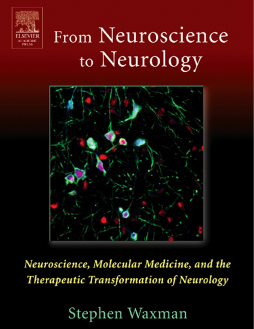
Additional Information
Book Details
Abstract
The field of neurology is being transformed, from a therapeutically nihilistic discipline with few effective treatments, to a therapeutic specialty which offers new, effective treatments for disorders of the brain and spinal cord. This remarkable transformation has bridged neuroscience, molecular medicine, and clinical investigation, and represents a major triumph for biomedical research. This book, which contains chapters by more than 29 internationally recognized authorities who have made major contributions to neurotherapeutics, tells the stories of how new treatments for disabling disorders of the nervous system, such as stroke, multiple sclerosis, Parkinson’s disease, and migraine, were developed, and explores evolving themes and technologies that offer hope for even more effective treatments and ultimately cures for currently untreatable disorders of the brain and spinal cord.
The first part of this book reviews the development of new therapies in neurology, from their inception in terms of basic science to their introduction into the clinical world. It also explores evolving themes and new technologies. This book will be of interest to everyone – clinicians and basic scientists alike – interested in diseases of the brain and spinal cord, and in the quest for new treatments for these disorders.
* Presents the evolution of the field of neurology into a therapeutic discipline
* Discusses lessons learned from past successes and applications to ongoing work
* Explores the future of this field
"The volume paints an intriguing picture of the ways in which neurological diagnosis and management have been transformed during the last 50 years; as a witness to these developments, I cannot but congratulate the editor and his collaborators not least for the perspicacious glimpses they give us of what further transformations will arise in the near future."
--John Walton, Lord Walton of Detchant, Detchant, Northumberland, in BRAIN (2005)
"Young investigators are the readers who will most appreciate this book."
- Lewis P. Rowland, M.D. (May 2005)
